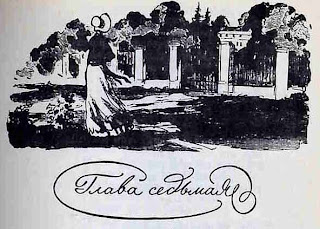
My friend, Tom, has been bugging me for over a year to set up a blog somewhere. The problem was to come up with the appropriate hook. Tom explained his theory of blogging to me.
It's not hard to come up with a set of things you want to talk about. The problem is to frame it in some subject that
a.) gives you an excuse to post regularly, and
b.) creates at least the illusion of some sort of fresh ideas.
In Tom's case, he chose to post about where he had lunch each day. Since this usually has something to do with where he is, who he's talking to, and what he's generally doing, this then gives him the excuse to talk further about technology, travel, his soccer officiating, and any other topic that seems important. And more importantly, the reader begins to realize that Tom actually has some pretty interesting lunches.
My lunches are usually pretty boring, and that's why I've decided to describe books I'm reading at any moment. I don't dive into this lightly, which is perhaps why it has taken me over a year since I agreed that maybe starting a blog would be a good idea. (Well, that, and general laziness.) Whether or not we are what we eat, surely much more is revealed by what we read.
And that brings me to the first book, Alexander Pushkin's Eugene Onegin (Евгений Онегин). I first read through this when studying Russian in college, and I'm perennially picking it up now and again, if only in attempt to prevent my Russian knowledge to disappear completely.
In one of my favorite moments, Tatyana is completely cured of her crush on Onegin, not because he just murdered her sister's fiancé in a duel, but because she sees his books. Looking at his collection of simpering 18th century English poetry (which Nabokov points out would have been in terrible translations), she realizes what a shallow and selfish person he is.
Что ж он? Ужели поражнье,
Ничтожный призак, иль еще
Москвич в Гарольдовом плаще,
Чужих причуд истолкованье,
Слов модных полный лексикон?..
Уж не пародия ли он?
In Nabokov's translation:
who's he then? Can it be—an imitation?
an insignificant phantasm, or else
a Muscovite in Harold's mantle,
a glossary of other people's megrims,
a complete lexicon of words in vogue?
Might he not be, in fact, a parody?
Of course, in part, I think that Pushkin was demonstrating how intelligent and perceptive Tatyana is, and not suggesting that everyone can be judged by their libraries. But I also suspect that he meant any educated person to feel a pang at the insinuation that we are "a complete lexicon of words in vogue". Similarly, when Onegin is first introduced, Pushkin satirizes the facile nature in which he spouts epigrams, or memorizes historical anecdotes, but shows no real interest in knowledge at all.
And isn't every blog, or for that matter, any literary effort, in danger of falling into that?
I don't know. I suspect it's time for lunch.

1 comment:
Eric,
Your mention of me as an inspiration is kind, thank you.
A blog is an expression on oneself and I am pleased you have chosen to give others a view into a part of your life.
This is a wonder first post, hopefully to fade into obscurity as you make more and more posts. It is a memory from a wonderful book you have read (possibly over some lunches).
As I've blogged more and more I realize that the lengthier entries are more difficult to digest. I still make them, but it is more interesting to me to look back over my shorter blog postings and let the picture do the talking. Just my observation at this point in my blogging experience.
But onward Eric - you are off and out of the gate now!
TEK
Post a Comment